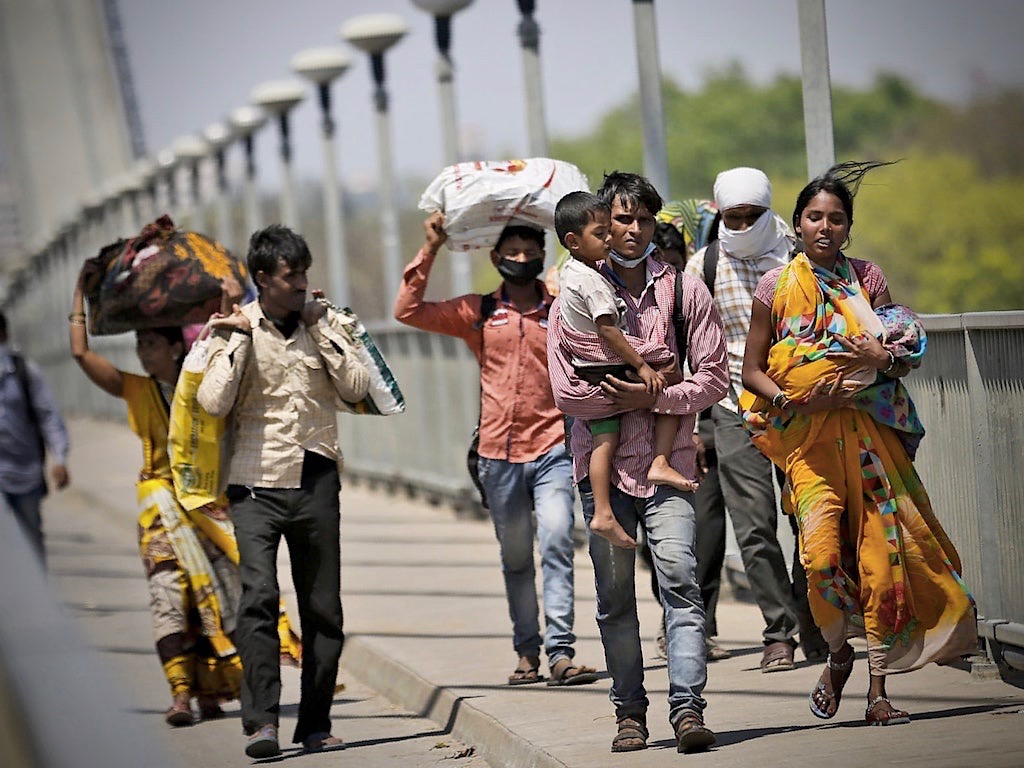8 Mins Read
As Covid-19 continues its spread across the world, the pandemic will disproportionately affect the world’s most vulnerable populations, among them asylum seekers, refugees, internally displaced peoples and migrant workers. The world must turn its attention to respond to this global crisis in a way that recognises the acute challenges these communities face.
The entire world is gripped by the current coronavirus pandemic. From Lombardy to New York and Wuhan to Bogota, all global resources- from governments, businesses and individuals- are being redirected to fight the spread of Covid-19. Even healthcare systems in developed economies are under immense strain, overwhelmed almost to their breaking point with hundreds of thousands of patients needing emergency care and rising deaths.
For many of us, the experience of this pandemic is like none other – half of the world is on lockdown, those of us who can are working from home and we have perhaps never been as worried about health and safety before. But for the vulnerable sections of global society – refugees, asylum seekers, migrant workers, displaced peoples and low-income earners – the gripping concerns about life or death are an everyday reality that Covid-19 has only intensified.
For these groups, the pandemic will undoubtedly make their lives even more challenging than they were before, exacerbating almost every threat they already face in terms of access to healthcare, sanitation, food, income, shelter and education. In East Asia alone, the recession will keep at least 24 million living on US$5.50 per day. The pandemic isn’t just a global health crisis – it is a humanitarian emergency for millions of people around the world.
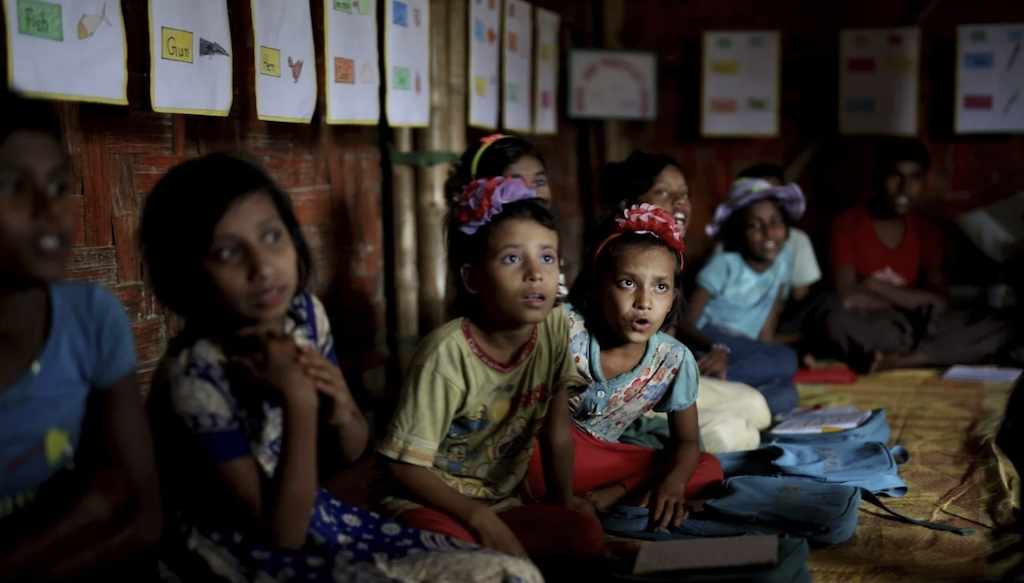
This including people right here on our doorstep in Hong Kong. Already one of the most unequal cities in the world, marginalised groups in Hong Kong have for months been facing additional difficulties resulting from the economic downturn, from pay cuts to loss of employment altogether – all of which will only work to deepen existing social inequalities and trap poverty-stricken groups.
“In the immediate term, many people from marginalised groups struggle to afford personal protective equipment, like masks and hand sanitiser. This is an unforeseen expense that they now have to assume, with little wiggle room in their budgets,” explains Victoria Wisniewski Otero, Founder & CEO of Resolve Foundation, a Hong Kong-based charity. Low-income or on-call gig workers, many of whom are unable to work from home, are forced to sacrifice their health if they cannot afford resources to protect them from the virus.
“And while many of us have the privilege of social distancing in our homes, for Hong Kong’s poorer members of society, their housing is cramped and uncomfortable, if they even have a roof over their head at all,” Otero adds.
Hong Kong is also home to a huge migrant worker population, with migrant domestic workers alone representing close to 10% of the city’s total working population. While policies put in place to curb the spread of the virus are crucial to help flatten the curve of Covid-19, many of them, such as social distancing and bans on large gatherings may put their labour rights in jeopardy. For asylum seekers in the city, they face the additional threat of lacking access to any medical care at all.
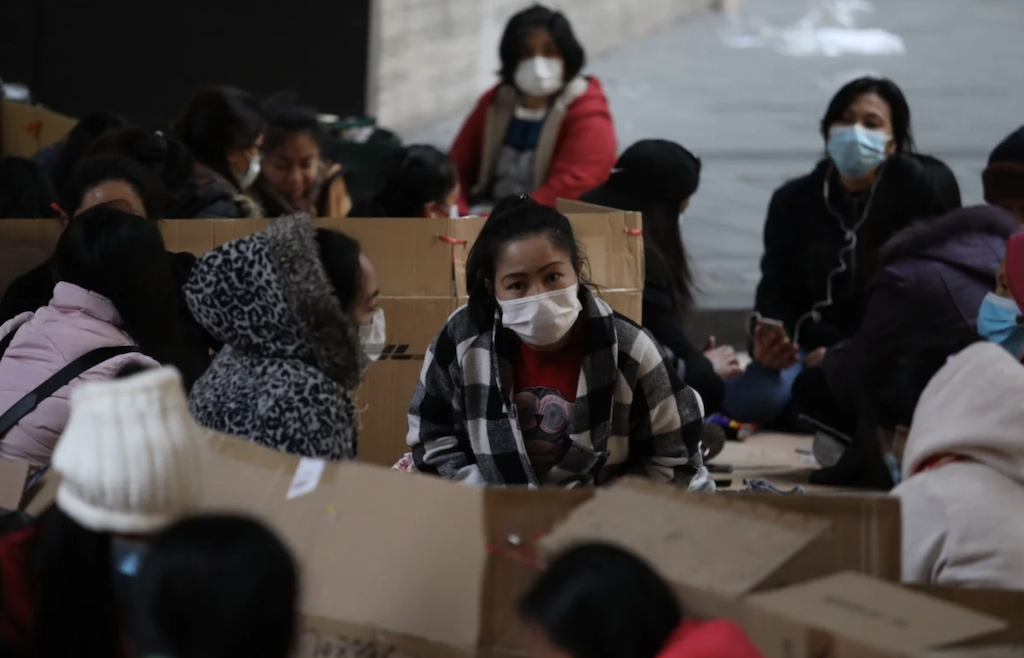
While the Hong Kong government has launched initiatives to help boost the economy and alleviate some of the social impacts of the pandemic, “almost all of the funds that have been put forth…have restrictions that limit access by minority communities, especially people like domestic workers or asylum seekers with visa restrictions,” said David Bishop, co-founder of nonprofit Migrasia and Principal Lecturer at the University of Hong Kong.
In India, the second most populous country in the world, 1.3 billion people are officially on lockdown, the biggest quarantine effort implemented by any government. The Indian economy itself is made up of local communities that power its marketplaces, farms and warehouses, the backbone of which is a massive informal sector that makes up 80% of the country’s non-agricultural employment, including migrant labourers who rely on daily wages.
Not only have 92% of the migrant day labourers already lost their incomes as a result of the economic fallout from the pandemic, they were given only 24 hours to return to their homes in time for the full country lockdown curfew. This was basically impossible for most of them, given that a vast majority come from far-away villages and given that transportation routes were cut off anyway. For many, it is a life-or-death journey on foot, a risky gamble that can mean facing police beatings, starvation and dehydration. At least 20 migrant workers have already died as they make their way home, hundreds of kilometres away.
Similar hardships are felt by the majority of the 7 million migrant labourers across Southeast Asia. Wealthy expatriates can choose whether they stay in their place, or to go, and often if they are passport holders of advanced economies, governments may even help them fly home. But faced with no wages, industrial workers, domestic servants and garment labourers have to choose between sleeping where they work – in cramped conditions, without access to clean water, potentially running out of food rations – or to attempt to make the journey home, where upon their arrival they will be faced with similar overcrowded conditions, the perfect hotbed for the spreading of the pandemic.
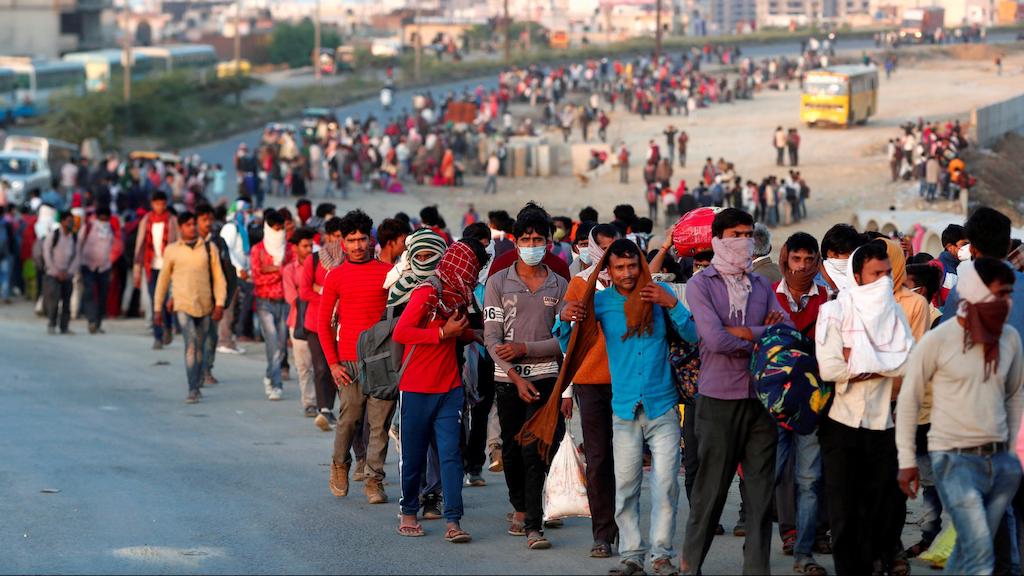
Then there are the hidden victims – refugees and displaced people. In a recent statement, Henrietta Fore, the chief of UNICEF, said that there are 31 million children who are torn away from their homes, 17 million of which are internally displaced, 12.7 million are refugees and 1.1 million are asylum seekers. Most of them cannot call a doctor if they become sick, cannot wash their hands whenever they need to, and physical distancing is simply impossible in the swarming camps where they currently reside.
Many camps are already in a race against a ticking time-bomb. In Malakasa and Ritsona, two of 30 refugee facilities in Greece, several cases of people displaying symptoms of the virus have been detected. If left uncontained, a full-blown outbreak in camps would send the human cost of the pandemic further into unchartered territory.
“Many of these individuals are separated from their families and away from their country of origin, their physical and emotional needs must not be forgotten,” said Archana Kotecha, the Asia Region Director and Head of Legal at Liberty Shared, an anti-trafficking NGO.
“Aside from the devastating loss of lives, the human impact of this pandemic on vulnerable migrants, refugees and the undocumented is likely to be a heightened risk of exploitation. Poor access to already strained healthcare services and no access to social welfare causes a crystallisation of vulnerabilities driven by the need to survive in exceptionally difficult times,” explains Kotecha.
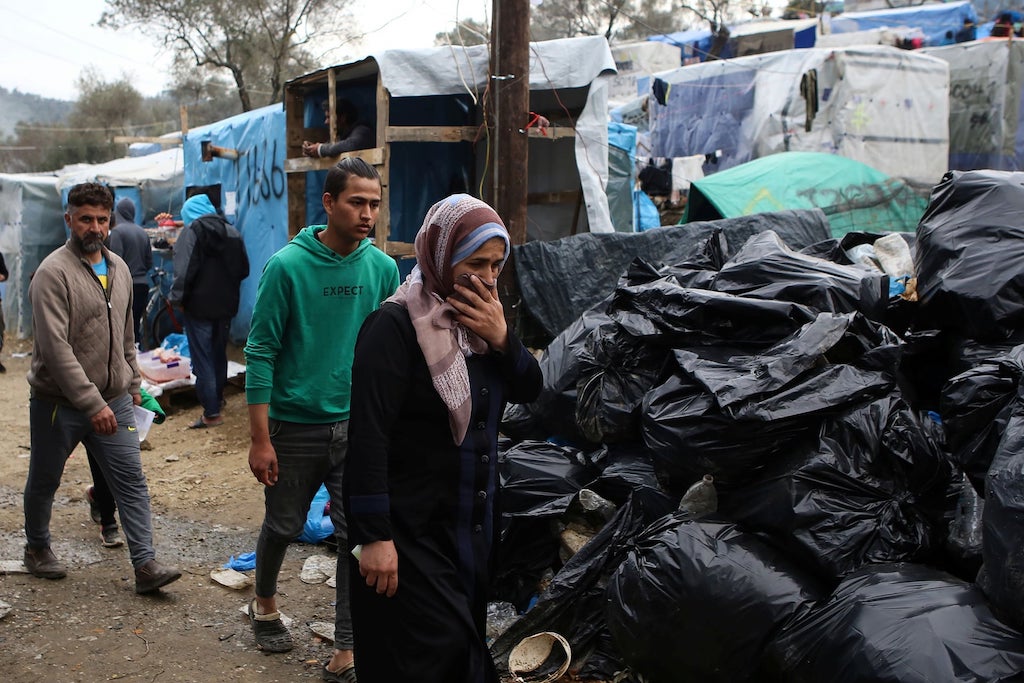
Recently, the United Nations launched a major humanitarian fund worth US$2 billion to lead a global response plan to some of the world’s most vulnerable countries. The appeal seeks to protect millions of people around the world who are most at risk of the coronavirus itself, and the consequential impacts of efforts to contain the pandemic.
The fund will help kickstart global governmental efforts to respond to the acute challenges that vulnerable groups face. But this is only the beginning, and all of us have a responsibility to step in to do what we can.
Otero believes that those of us who have the privilege to remain at home without huge financial strains should do their part. There are existing drives by civil society groups to organise distribution campaigns and initiatives to support the homeless. “Now is the time to pledge your support. Become a monthly giver to NGOs, giving them a stable source of income. During so much uncertainty, this sends a great message,” she said, adding that “when the wellbeing of vulnerable groups is safeguarded, we all benefit collectively as a society.”
The world is undoubtedly shaken by the pandemic, but some are and will continue to bear a much heavier burden as the crisis continues. For those of us on the fortunate side of the world, we must acknowledge our unique responsibility to give and support others in any way we can right now. History’s judgement will not be kind should we foresake compassion and aid for the voiceless amongst us during this unprecedented global crisis.
What you can do right now to help marginalised groups vulnerable to Covid-19 in Hong Kong:
- Donate supplies or a monetary contribution to PathFinders, a charity dedicated to helping vulnerable migrant mothers here.
- Branches of Hope is a charity providing aid for refugees, asylum seekers and victims of trafficking, donate here.
- Help Refugee Union, a charity supporting the city’s refugee population by donating here.
- Donate to anti-human trafficking NGO Liberty Shared here.
- Support the work of Justice Centre, a legal and advocacy NGO protecting the rights of refugees, victims of torture and forced labour here.
- Make a contribution to Resolve Foundation, a charity supporting the city’s marginalised population here.
- Help distressed migrant workers by making a donation to Mission for Migrant Workers here.
Lead image courtesy of Rajesh Kumar Singh / AP.

